Caregiver Support
How I equipped Digihaler for pediatric asthma and COPD management
Contribution Highlights
- Designed introductory caregiver features, leveraging research to meet key parental needs
- Led feature development, presented updates, and aligned stakeholders throughout
- Oversaw user testing with an outside firm, gaining insights for final design
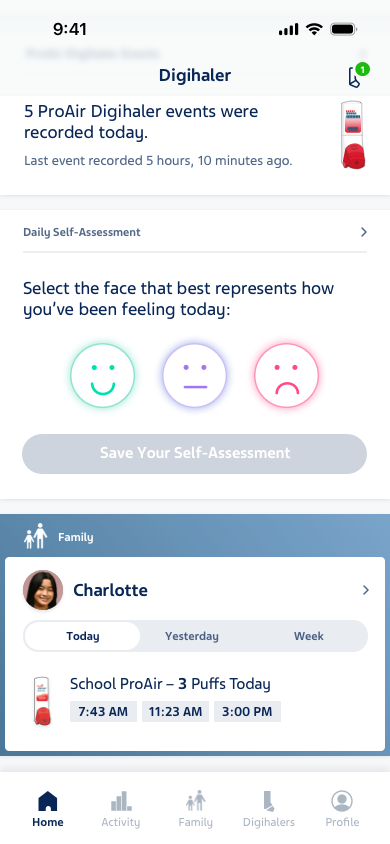
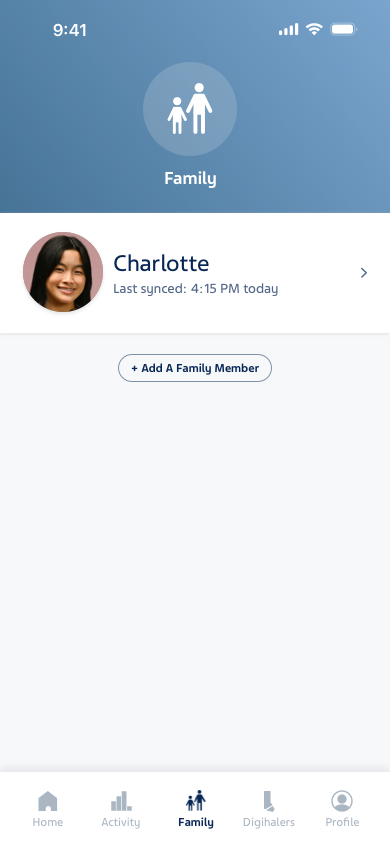
Objective
After establishing a solid user base of self-managing individuals, Teva sought to expand Digihaler's market to include caregivers. With over 8% of American children currently diagnosed with asthma or COPD, millions of caregivers manage these conditions daily. This represented a substantial business opportunity and a chance to greatly assist parents caring for their children.
Caregiver Needs
Despite the app lacking caregiver support, the UX team was already well-versed in caregivers' needs. We'd conducted discovery research in anticipation of this direction and gained insights into caregivers' motivations and goals through interviews and card sorting exercises.
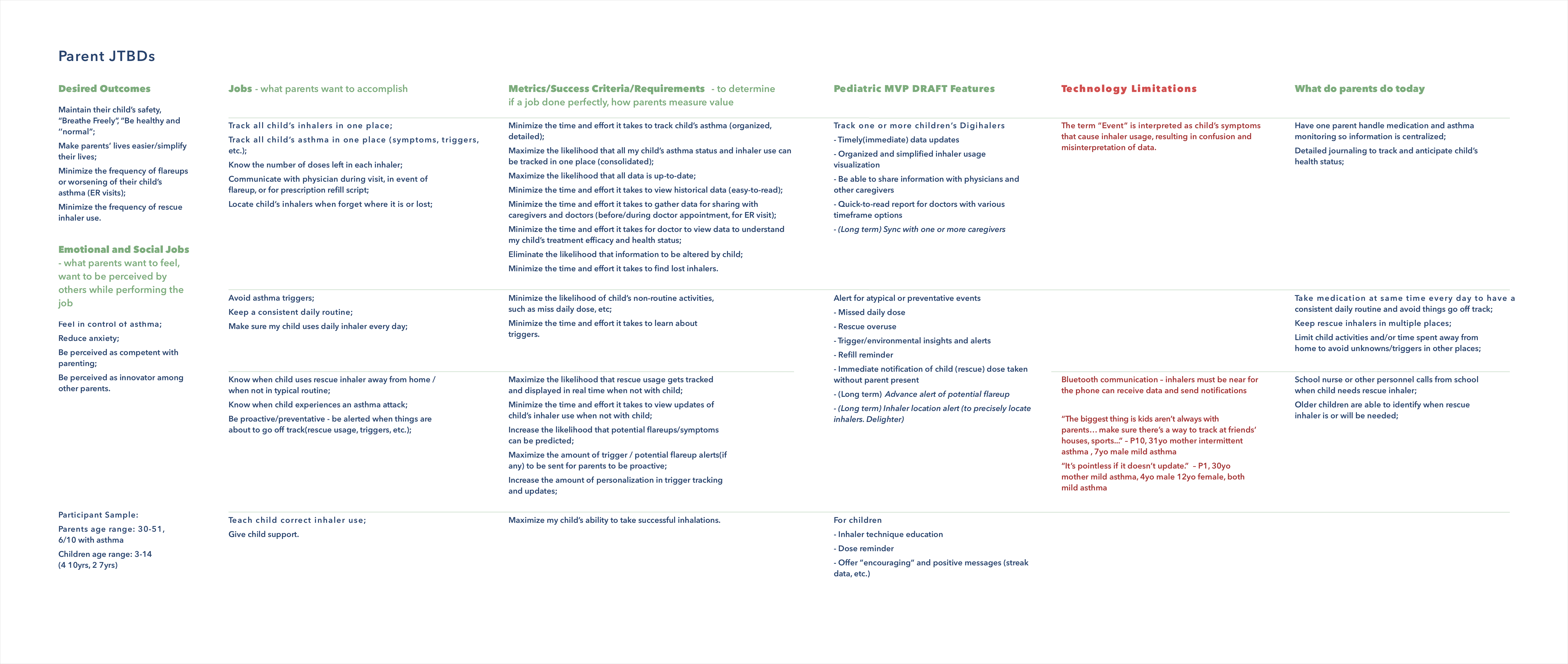
Sample findings include:
- Many parents manage their kids' conditions with detailed journals, largely tracking data that Digihaler captures automatically.
- Parents desire more and different notifications for their kids than for themselves (when they are also a Digihaler user), preferring numerous notification types as long as they can opt out.
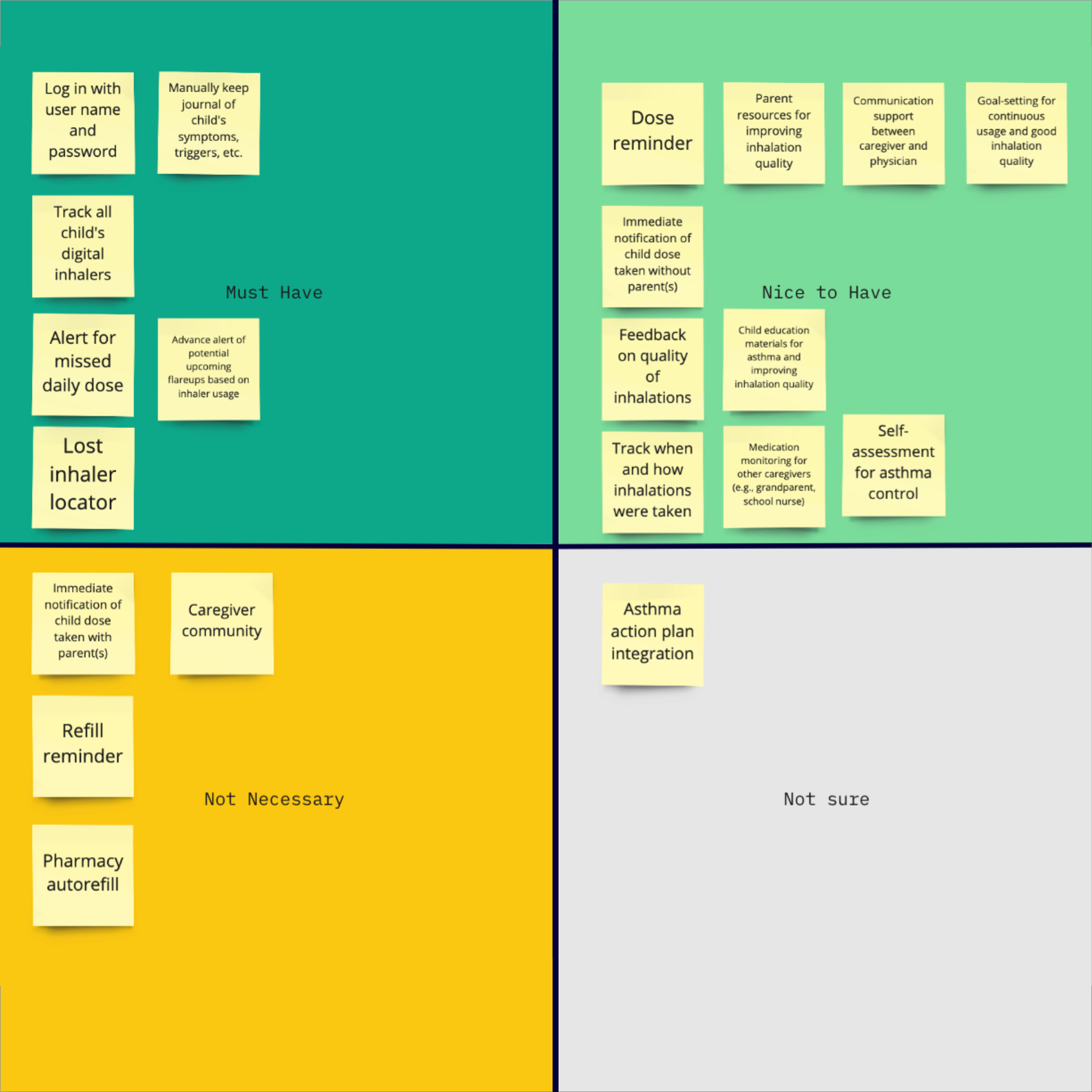
Team Planning
Detailed planning began after I translated the caregiver findings into candidate features suitable for the release. Along with the product manager and lead engineer, we estimated design and engineering effort, defined bedrock features like basic account management for kids, and sought out any high-value/low-effort areas.
Time Constraints
Despite occasional deadline shifts on past releases, this release would need to stay on track to align with a marketing campaign to parents set to launch in tandem with the release.
To ensure an on-time release, the project team chose to restrict v1 caregiver features to parents who were also patients, minimizing the need for additional work like app onboarding for non-patient caregivers. While this would reduce the implementation workload, I still aimed to design a solution that was adaptable for non-patient caregivers in the future.
Setting a Course
The product team committed to delivering these essential caregiver features:
- Caregivers (who are Digihaler users themselves) can add and manage kid profiles within their account
- Caregivers can track children's inhaler use
- Caregivers are notified of important events like a kid missing a dose
Design & Usability Testing
With the problem defined, I engaged in several design sprints to develop concepts for prototyping and testing with some existing Digihaler users before finalizing.
I concurrently analyzed other products with parent-managed child accounts, mapped use cases, and iterated on designs. I then led an outside agency to prepare interviews and InVision prototypes for testing. Our main questions were whether this initial version was both compelling and easy to use.
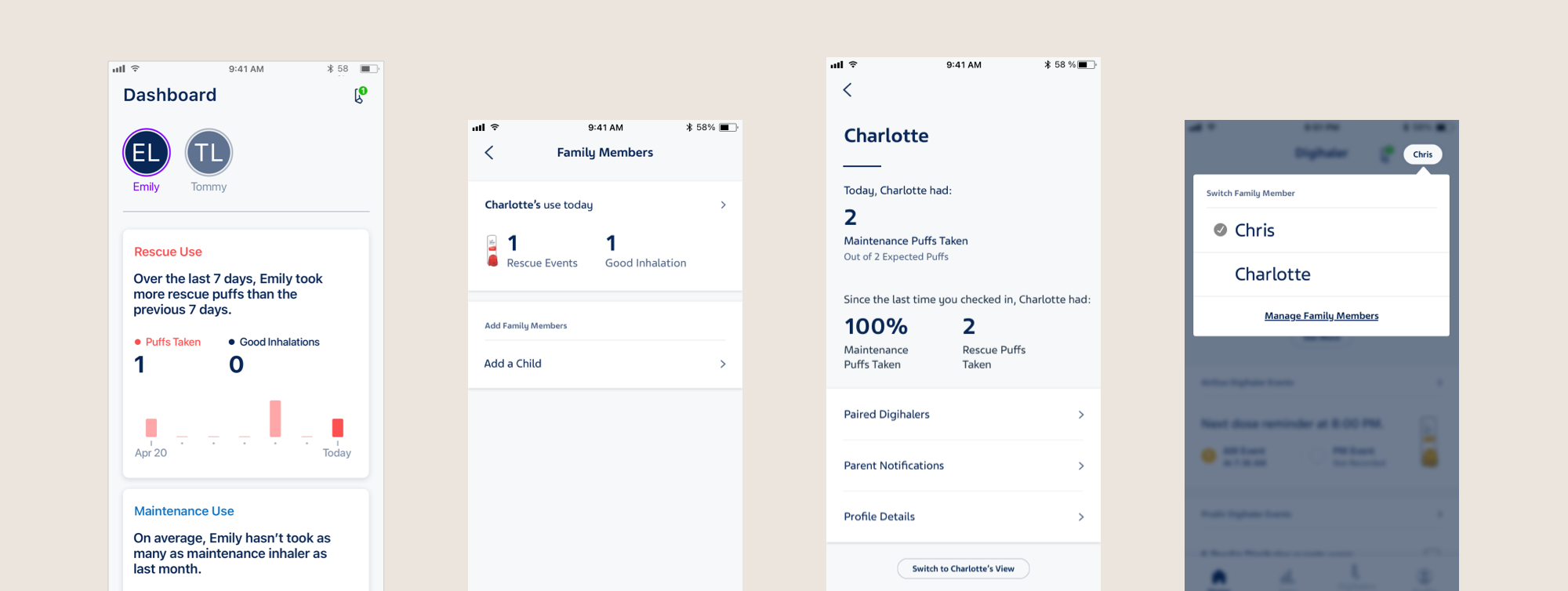
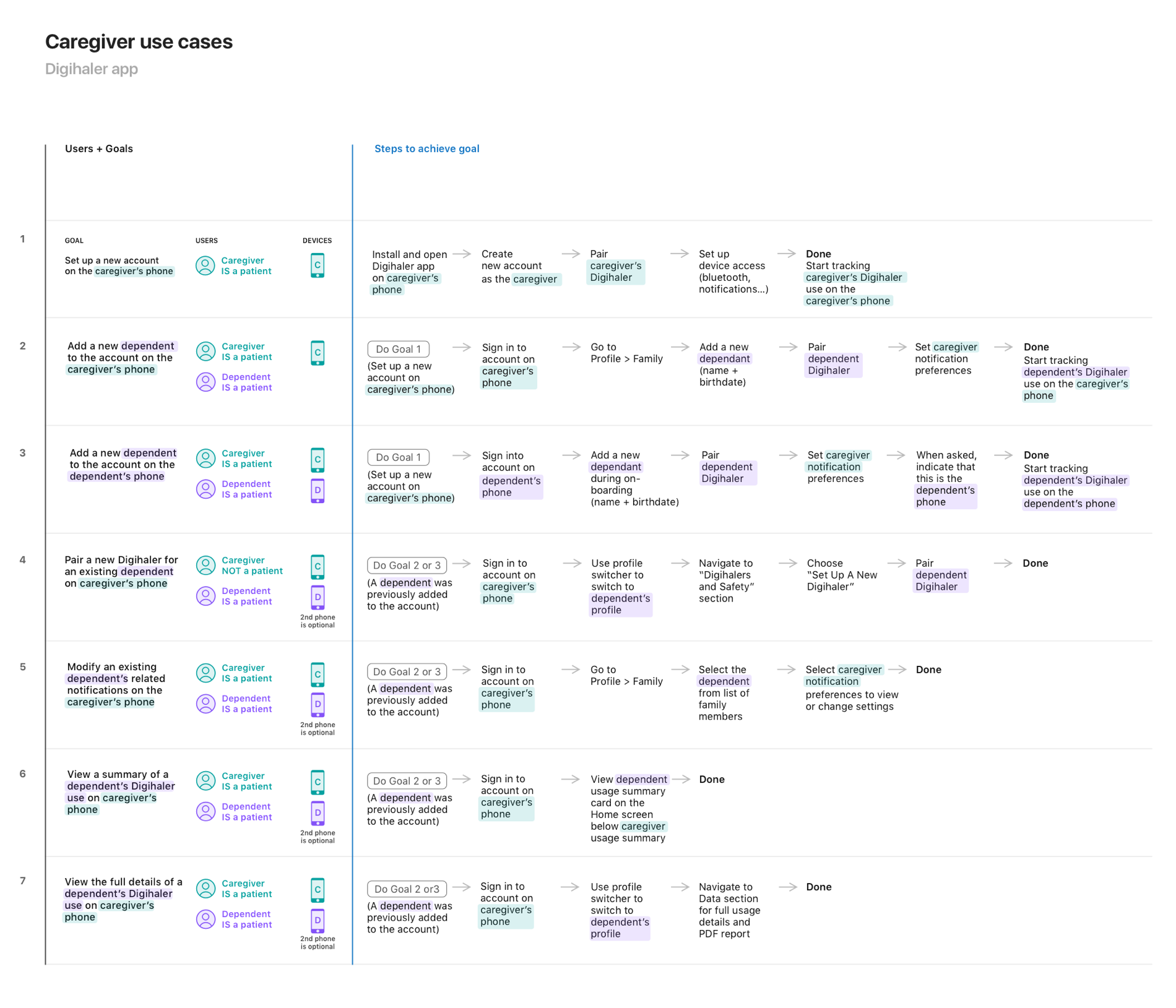
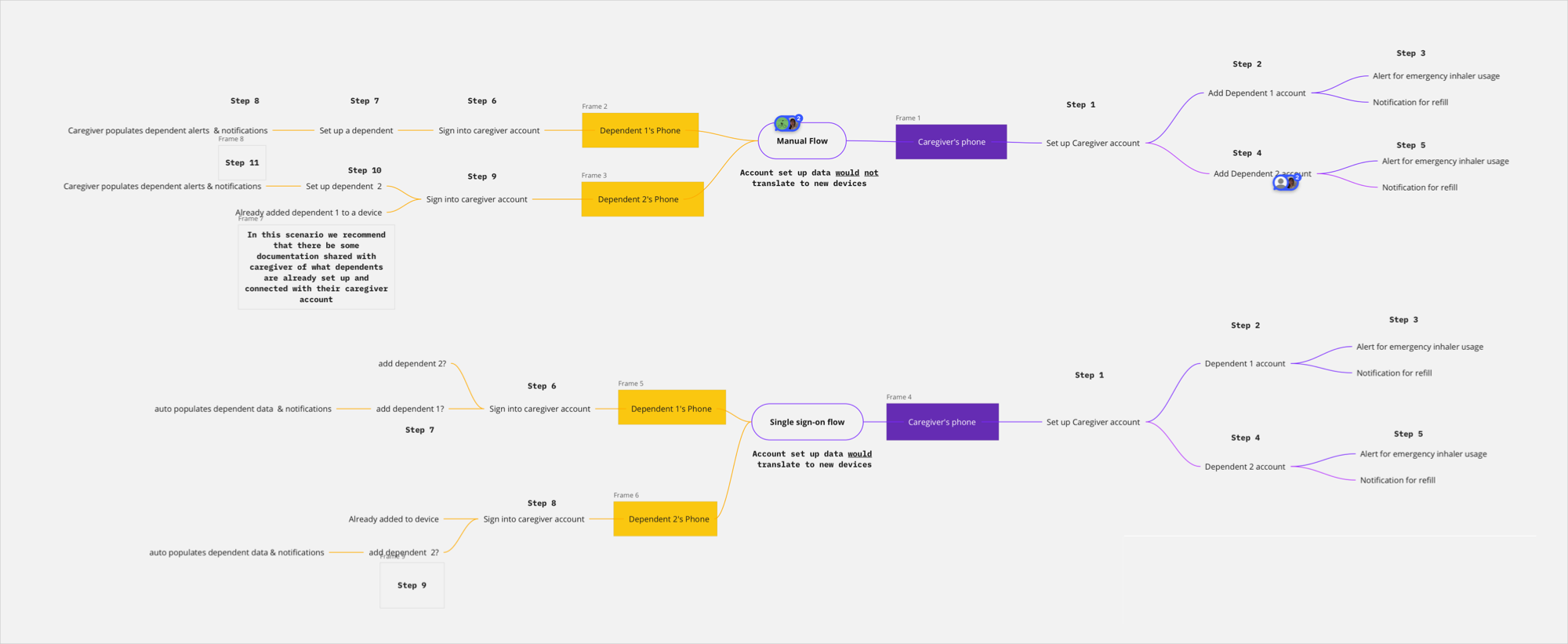
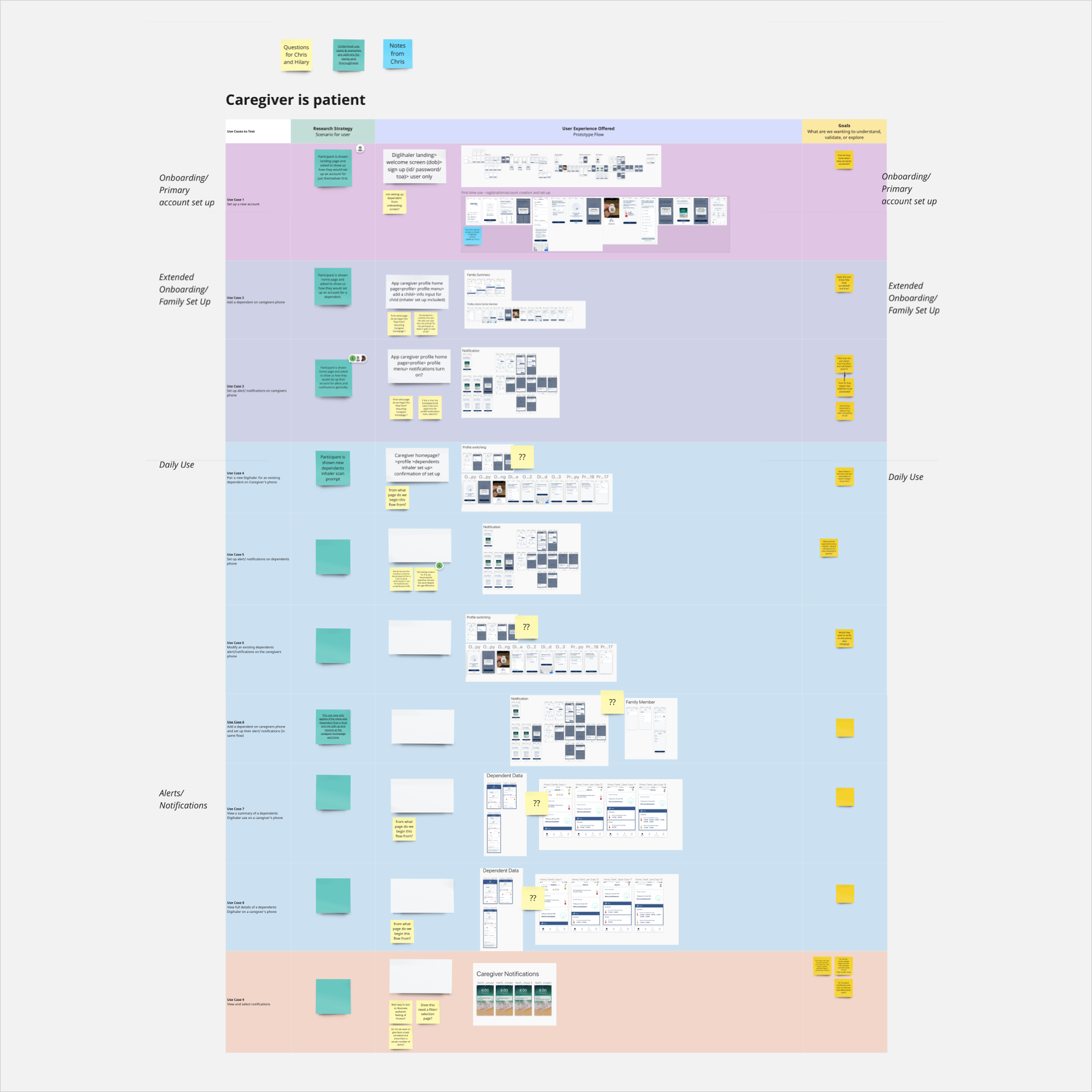
What Did Parents Think?
We surveyed 20 Digihaler users who are parents of children with asthma. They found the new flows intuitive, but had concerns about specific language. Users strongly emphasized their preference for a summary card showing their kids' most recent inhaler use on the home screen – included in the test, but considered a future feature. Parents considered the last 48 hours to the previous week of usage to be the most important and appreciated having this information easily accessible on the home screen.
Fueled by the parents' feedback, I worked diligently to persuade the team to include the summary card in v1. Reworking the component to reuse existing UI components from the Activity section helped ensure its inclusion in the release.
Solution
The final solution is centered on a new Family section in the app. A home screen summary card shows each child's recent inhaler use, while their full Digihaler activity history is available from their profile. Parents can also receive push notifications about their child's usage and refill reminders for low-dose Digihalers.
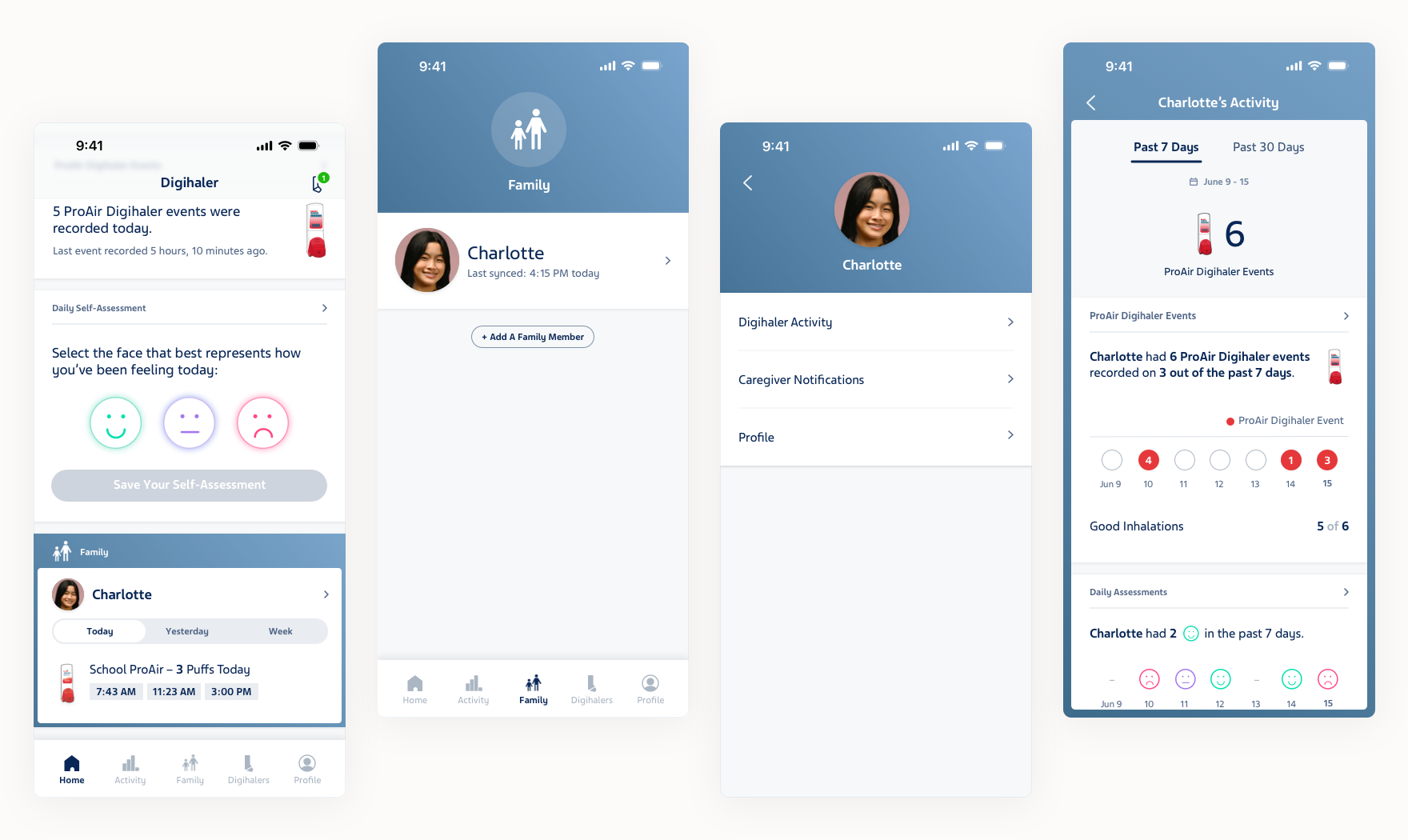
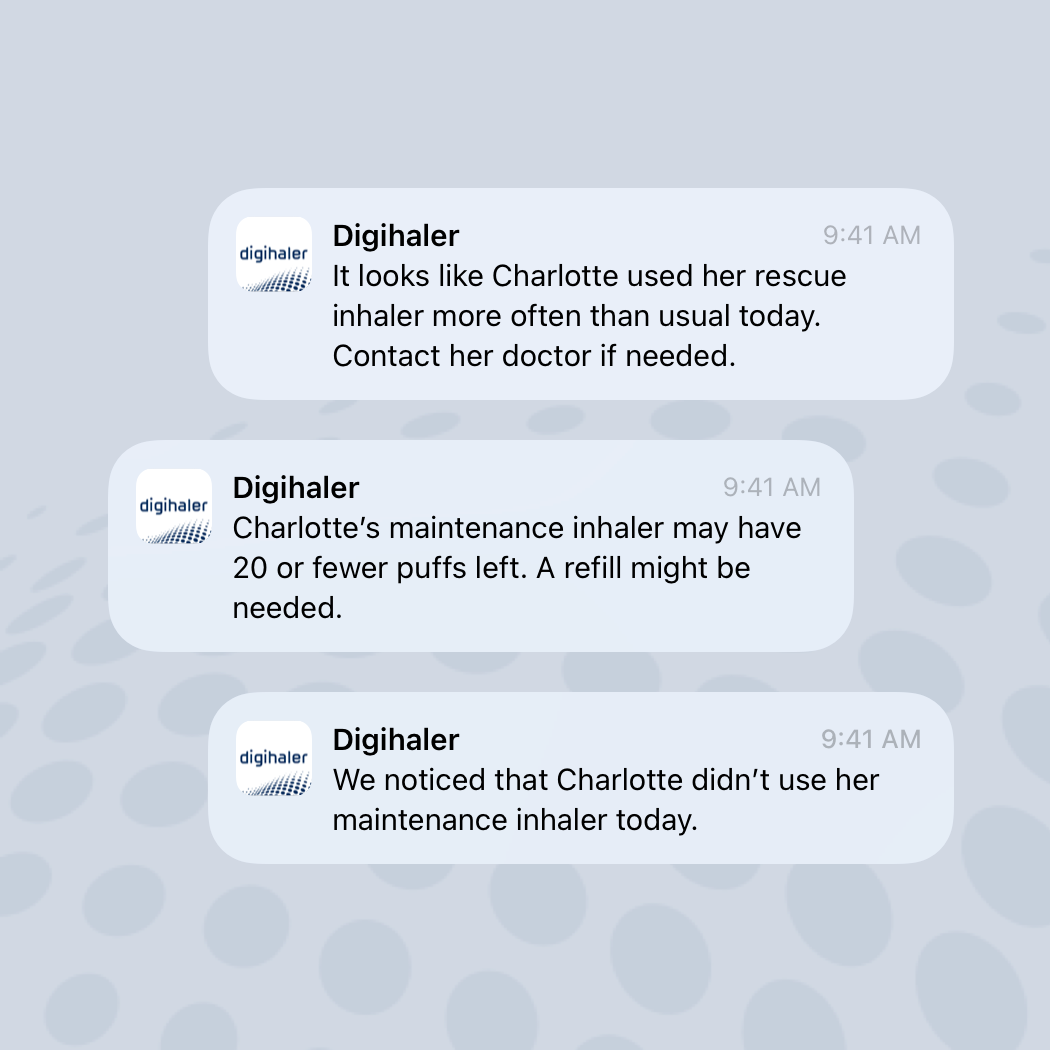
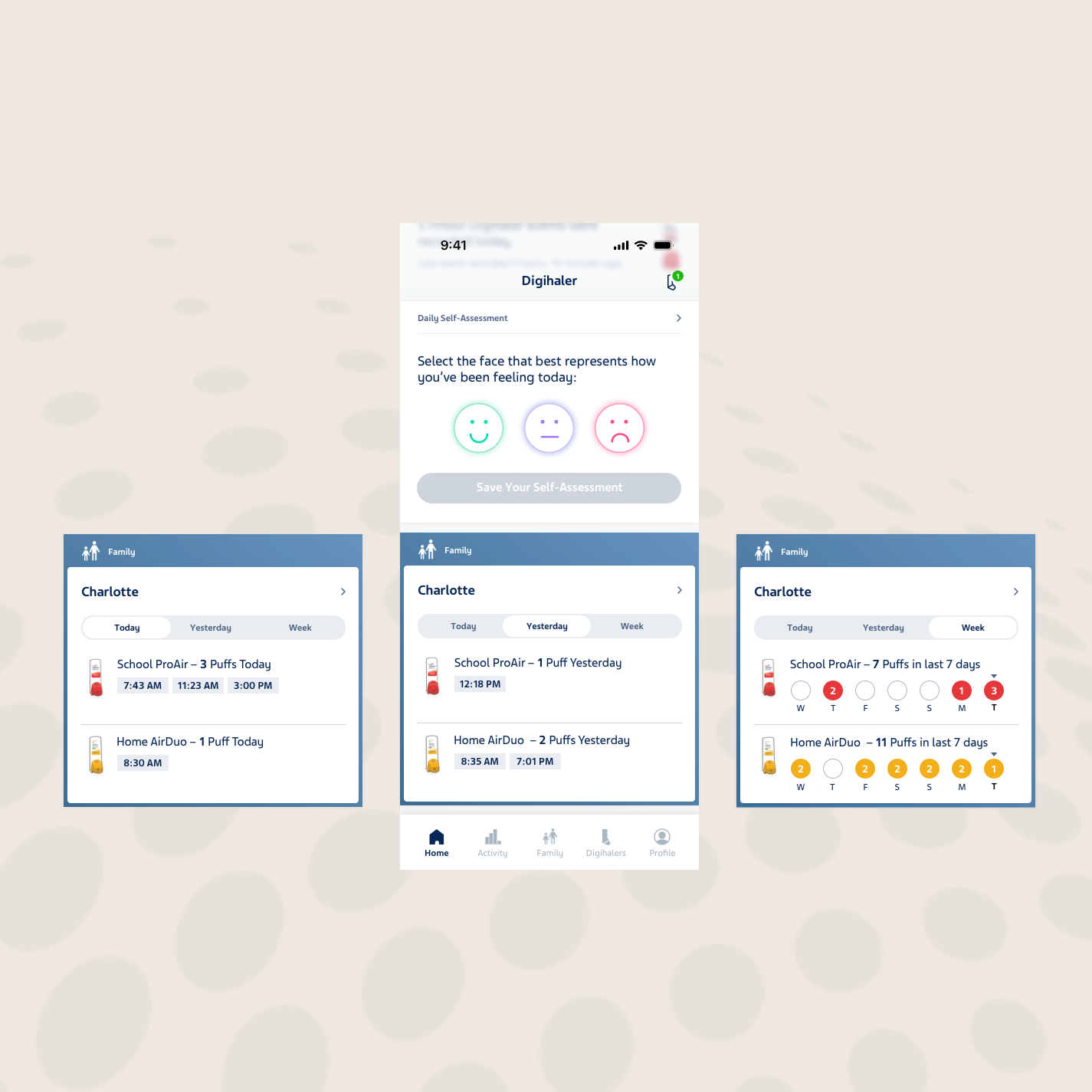
Outcome
As we prepared for the release during final testing, Teva halted all app development and announced they would sunset Digihaler in 2024. Despite this abrupt halt, I consider the project a huge success. Our team was immensely proud of the solution we created, exceeding expectations within an aggressive schedule. Our release would have laid a solid foundation for the future of caregiver support.
Although we were unable to launch and measure success, we planned to track caregiver enrollment and the number of children enrolled. Engagement was another key metric. The product team theorized that caregivers would be highly engaged users due to their ongoing interest in ensuring proper inhaler use by their children, which was expected to be sustained long-term.

